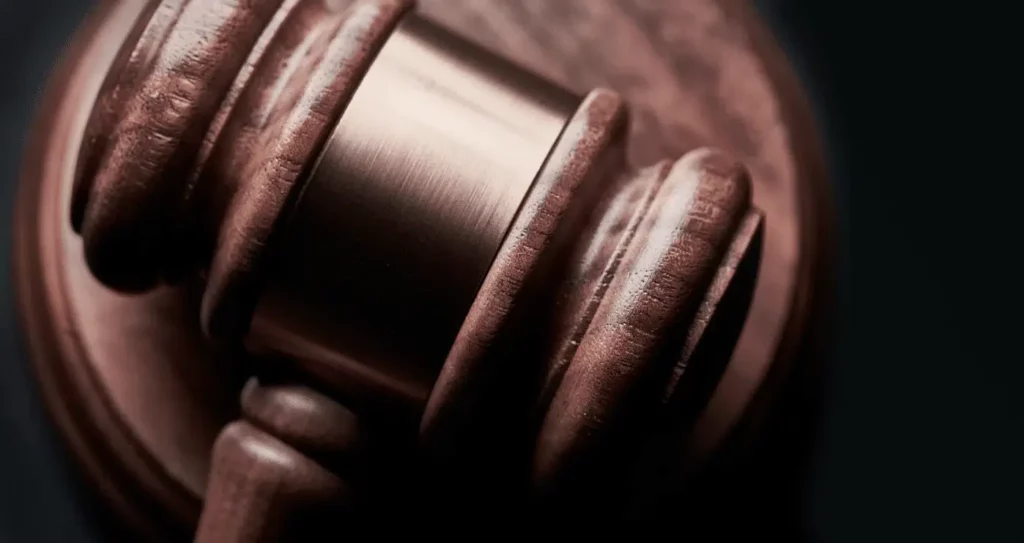
Flat fee structure means no surprise costs.
Custom solutions to protect your legacy.
7 generations in Denton, Texas.
Testamentary Trusts
As Denton’s premier estate planning and business planning law firm, Hunter Sargent, PLLC, can help you secure your legacy for generations to come. Ready to protect your financial future? Give us a call at (940) 594-7754 or contact us online to schedule a consultation.

What happens to your assets when you die?
If you’re like a lot of people, you’re depending on your closest loved ones to communicate your wishes after you pass. Unfortunately, that doesn’t always happen. And in the absence of a legal directive, your grieving loved ones may end up in conflict over what they believe you would have wanted. That’s no way to be remembered.
Luckily, there’s an easy way to circumvent this scenario: Make an estate plan. Even if your estate is relatively small, it’s still important to create one. Doing so will help your surviving loved ones avoid unnecessary conflict and ensure your legacy for generations to come. One of the most popular tools for doing so is called the testamentary trust.
If you’re totally new to estate planning, you may be overwhelmed and unsure about where to start. That’s ok! You don’t have to be an expert as long as you partner with one. The testamentary trust attorneys at Hunter Sargent, PLLC, can help you explore your options. Keep reading to learn about the benefits of creating a testamentary trust and how it can help you.
Whether you need to create a will, a trust, a lady bird deed or a different type of asset protection plan, the estate planning lawyers at Hunter Sargent, PLLC, are here to offer legal advice. Give us a call at (940) 594-7754 or contact us online to discuss your options.
What Is a Testamentary Trust?
In simplest terms, a testamentary trust is one that is established in a person’s last will and testament, which is why it’s called “testamentary.” The deceased’s will may contain instructions to establish a testamentary trust so that the trustee can distribute a person’s assets to the people outlined in the will.
Testamentary trusts are not created until after the person has passed away. Additionally, a will may contain more than one testamentary trust. Although they play an important role in wealth management, testamentary trusts are not for everyone.

How a Testamentary Trust Works
A testamentary trust serves to manage the deceased’s assets on behalf of their beneficiaries. Unlike many other wealth management tools, it doesn’t exist until the person dies. It is essentially a set of instructions contained in the will by which a predetermined representative (and executor or executrix) will follow to draft the trust.
When someone establishes a testamentary trust within their will, they name their estate executor and leave instructions on how they should handle and distribute assets. However, it doesn’t go into effect immediately after the trustor’s death. First, it must go through probate—a legal process in which a local court verifies the authenticity of the will and the named executor.
After the probate process is completed, the trust is established and the executor can transfer property into the trust. The assigned trustee manages the assets until the trust expires and the assets pass on to the beneficiary. The trust’s expiration date generally coincides with a specific event, such as the beneficiary reaching a certain age or graduating from college.
Testamentary Trusts Vs. Living Trusts
Testamentary trusts and living trusts differ in a few key ways.
Whereas a testamentary trust is not established until after the grantor’s death by an assigned executor, a living trust (also called an inter vivos trust) is established during the person’s lifetime, and the trustee is responsible for managing its assets. A living trust allows the trustor to have more involvement in distribution of assets since they’re still alive.
Additionally, a living trust can be revocable (although not all of them are). A testamentary trust, on the other hand, is typically established as an irrevocable trust.
Advantages and Disadvantages of Testamentary Trusts
A testamentary trust is just one of many estate planning tools, and it has many advantages and disadvantages. Whether or not it’s beneficial to an individual’s financial situation depends on a number of factors.
Here are some of the advantages of creating a testamentary trust:
- Control over fund distribution. A parent with young children can use a testamentary trust to outline instructions for when funds should be distributed to their minor children, such as at a specific age or milestone. For example, a parent can use this type of trust to make sure their beneficiaries don’t receive funds until they’re 18 years old.
- Modifications. Although a testamentary trust is irrevocable after the grantor’s death, it is easy to modify and make changes to when they are still alive, similar to a revocable living trust.
- Inexpensive to create. Although it still costs money to create a will, the cost of establishing a testamentary trust comes out of the trustor’s estate after they’ve died, thereby avoiding the cost of creating a trust while still alive.
Although they offer distinct benefits, testamentary trusts aren’t advantageous for everyone. Here are some of the disadvantages of establishing this particular trust:
- Probate court. Unlike some types of trusts, a testamentary trust must go through the probate process, which has the potential to be long and costly.
- Public record. When a trust goes through probate, its assets—and the beneficiaries of the trust—become public record.
- Lack of clarity in the will. The deceased’s will may be confusing or lacking clarity, and the executor may struggle to assign and distribute assets according to their wishes.
At the end of the day, the question of whether or not a testamentary trust is right for you depends on your specific financial situations and wishes. An experienced testamentary trust attorney in Denton, Texas, can help explore your options.
Testamentary Trust: FAQs
If you’re not an estate planning attorney, understanding the ins-and-outs of trusts and similar tools can be challenging. The best way to protect your legacy is by speaking to an experienced attorney. In the meantime, check out the answers to some of our most frequently asked questions.
What are the types of testamentary trusts?
There are two main types of testamentary trusts: separate for children testamentary trusts and family testamentary trusts. Whereas the former is used to establish separate trusts for each beneficiary and typically means each person will receive equal trust assets, a family trust is generally used by parents who want to leave more to one child.
Do I need a letter of testamentary?
Even when the deceased’s will names you as the executor, you will still need to get a letter of testamentary to assume your role. This letter is a court-issued document that grants you legal authority to act as executor.
What assets can be part of the testamentary trust?
Similar to a living trust, the assets in a testamentary trust can include almost anything, including stocks, bonds and other investments, real estate, cars, jewelry, personal papers, etc.
Who can be a trustee?
The individual creating the trust can choose anyone to be the trustee, but it should be someone they trust to act in the best interest of the children and other beneficiaries.
Are there any estate tax benefits of establishing a testamentary trust?
Beneficiaries do not have to pay income taxes on distributions from a testamentary trust.
Hunter Sargent, PLLC: Top Testamentary Trust Attorney in Denton, TX
Although estate planning tools like testamentary trusts can be complex to understand, they provide an invaluable service. They can help a grantor to protect their family members’ financial futures and establish a legacy that lasts. The best part? Getting started is as simple as scheduling a consultation with Hunter Sargent, PLLC.

Schedule a meeting now To Start
The best time to plan your legacy was 10 years ago. The next best time is today. Everyone needs estate planning – the good news is it’s never too early and if you’re reading this, it’s not too late.


